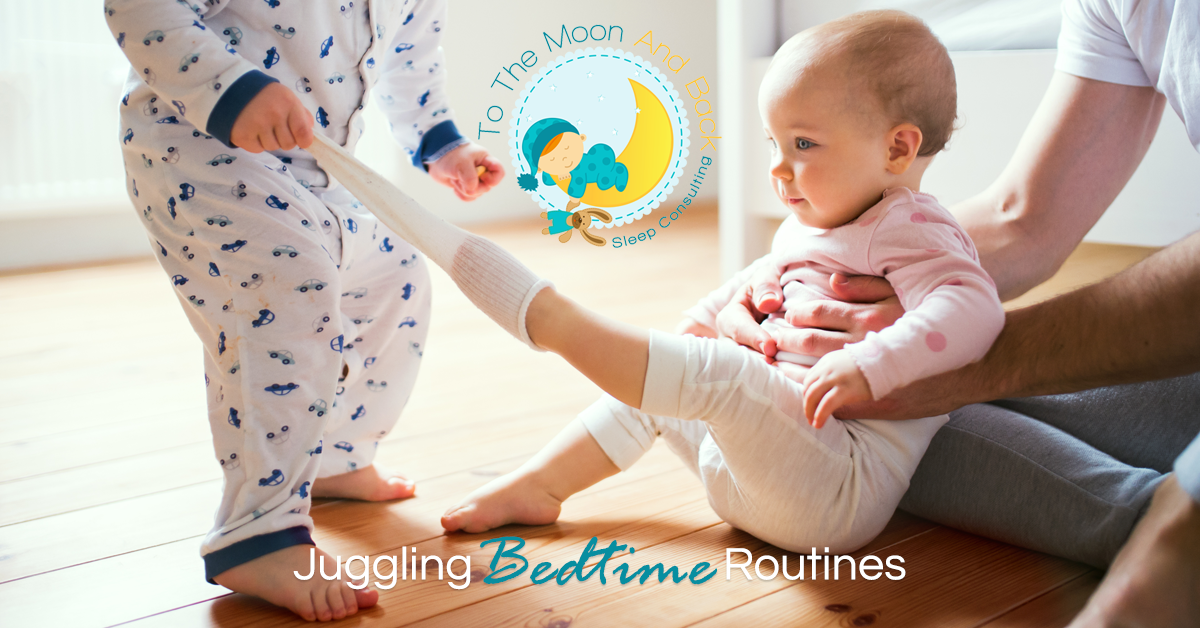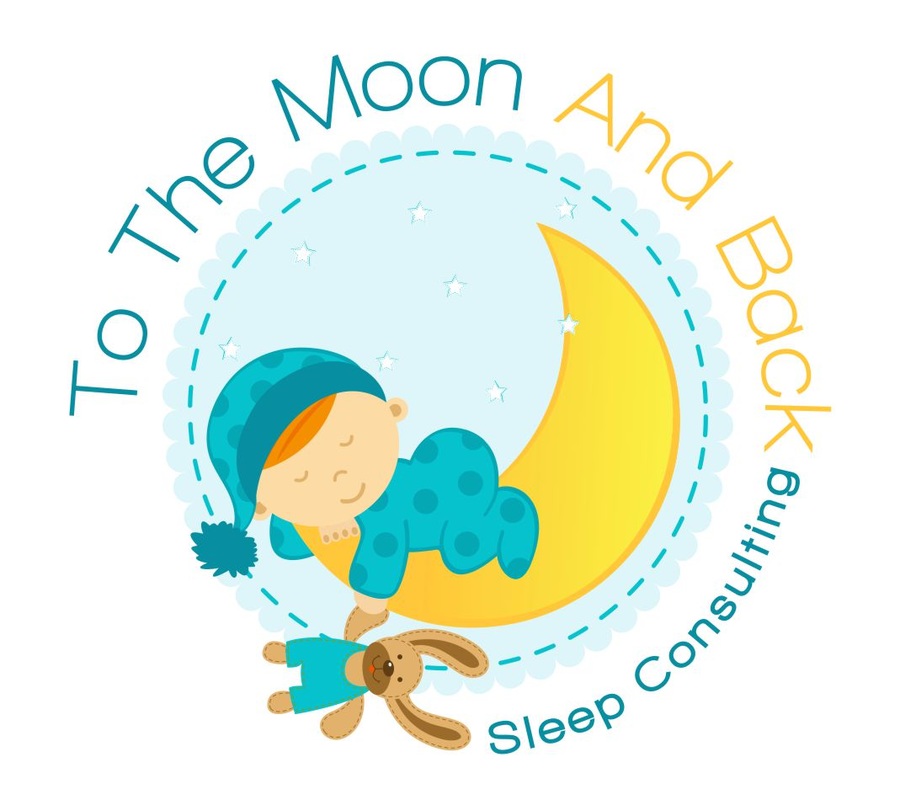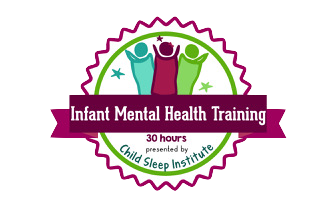|
As a parent, it's not uncommon to feel overwhelmed when it comes to your toddler's sleep habits. You may find yourself exhausted from trying to get them to fall asleep or stay asleep through the night.
This is where a Sleep Consultant like Erin at To the Moon and Back can help. Sleep consultants specialize in helping families create healthy sleep habits for their children, and here are some reasons why you should consider using one:
A Sleep Consultant can be a valuable resource for parents struggling with their toddler's sleep. They can provide a personalized sleep plan, professional expertise, consistency, ongoing support, and ultimately, help improve your child's sleep habits. If you're feeling overwhelmed or exhausted by your child's sleep habits, consider working with a sleep consultant to help create healthy sleep habits for your family. Book your Free 20-minute Sleep Evaluation Call to learn more about Erin's programs and how she can help change your family's life into one that sleeps well. So you’re on the fence about this whole, “Teaching your baby to sleep,” thing. On the one hand, you know that sleep is essential for everyone in your family. You’ve read all the literature and have come to agree with the consensus of the pediatric community that sleep is vital to your baby’s development and well-being. You’re 100 percent positive that your little one needs some help learning how to sleep well, and you’re dedicated to helping them overcome this obstacle. And on the other hand, you’re nervous as hell about it. Almost every parent I’ve worked with has started off absolutely riddled with anxiety. They know there’s a problem that needs fixing and they’re committed to that solution, but even with all of the research and evidence that this is a safe, effective process, they’re still on pins and needles.
So, what’s happening here? Is this your maternal instinct kicking in? Are you subconsciously aware of an underlying threat to your baby? Is mother nature trying to tell you not to teach your baby to sleep? Well, sorry to be ambiguous, but the truth is, it’s complicated. Sleep deprivation stimulates activity in the amygdala, which is a part of the brain that controls several of your immediate emotional reactions. According to a 2007 joint study between Harvard Medical School and U of C Berkeley, “...a lack of sleep inappropriately modulates the human emotional brain response to negative aversive stimuli.” Or, in layman’s terms, you’re likely to overreact when things go bad. So when, say, your baby starts to cry, you’re less inclined to think, “I wonder what she needs,” and much more likely to think things like, “I’m a complete failure as a mother.” This is what happens after one night of sleep deprivation, so you can imagine what chronic lack of sleep over the course of weeks, or even months, can lead to. You may even be experiencing it right now. It leaves you feeling helpless, inadequate, and riddled with anxiety. Alright, that’s the sleep deprivation part. Let’s look at the other major reason that this process can be so difficult, and the real elephant in the room when it comes to this whole endeavour. - Crying. Will your child cry when you’re teaching them this skill? Here’s the straight answer. It is extremely likely, bordering on an absolute certainty that, yes, your baby’s going to cry when you implement these new rules around bedtime. Is your baby also going to cry when they get dropped off on their first day of school? Again, we’re looking at about a 95 out of 100 probability. Will you baby throw a fit when you turn off their favorite cartoons, or when they get their first taste of asparagus, or when they’re told not to eat dirt? You betcha. And even though you know they’re not in any danger or genuine distress in those situations, you’re still going to feel your heart explode when you hear your baby crying. But again, if we look at this objectively, we can see that there’s an actual reason why the sound of a crying baby causes us such distress, and it’s not because of the actual level of urgency. Dr. David Poeppel, Professor Of Psychology & Neural Science at NYU, found that a crying baby differs from other environmental noises in something called the “amplitude modulation rate,” meaning how often the loudness of a sound changes. Crying babies, along with car alarms and police sirens, have a modulation rate of about 100 times per second, compared to a regular speaking voice, which hovers somewhere between 4 or 5. Experiments with an MRI to monitor the brains of people while listening to a variety of sounds, Poeppel found that baby screams have a unique ability to trigger activity in… you guessed it, our old friend, the amygdala. Where I think I can be of the biggest help here is by getting you to realize that your brain, despite having some really noble intentions, is playing tricks on you. It’s making you feel negligent. It’s making you think that your baby is in desperate need of something they’re not. It’s attempting to get you to address an immediate situation because it’s incapable of appreciating the long-term solution that you’re working towards. As with most instinctual habits, this one is more easily dealt with when we can appreciate not just what we’re feeling, but the science behind why we feel what we feel, so I wanted to provide you with that vital tool before you take on the challenge of helping your baby sleep through the night. Now that you know; it's time to take that leap of faith and take the next steps in the journey to helping your little one learn to sleep well independently. We can do this together! Erin AuthorErin Neri - Pediatric Sleep Consultant and Owner of To The Moon and Back Sleep Consulting since 2016. There are two things I can pretty much guarantee you when it comes to teaching your baby to sleep through the night.
I’ve also never worked with a family who didn’t feel like they had made a tremendous decision once their baby had learned to sleep through the night. The benefits to the whole family are almost indescribable. Like many big decisions though, there are times that are ideal and times that are less so. Today, I’d like to offer some tips for deciding whether or not it’s the right time to take this challenging, but oh-so-rewarding journey. I usually recommend that at least one parent is home for two weeks while you’re sleep training, so this might be a great opportunity to take the plunge.
I don’t advise parents to start sleep training within two weeks of traveling, but I’m guessing that’s not a concern for most of us at the moment since we’re all sticking pretty close to our home base. Is the time right for baby? The best chance for a quick and effective solution to your baby’s sleep issues is to implement the changes when they’re healthy and thriving. If baby’s dealing with reflux or colic, you’ll want to get that remedied before you start sleep training. There’s going to be some fussing and protest in the first few nights, and we want to make sure it’s only due to the change in their routine, not because of actual discomfort, and if they’re healthy, it’s much easier to pinpoint the reasons for their fussing. Bringing a new baby into the house is an incredible, exciting but also terrifying occasion, even more so when you have one or two children already. It can bring up a whole lot of questions.
How are the older children going to react to this new baby? Are they going to embrace the role of being an older sibling? Will they turn into jealous clingers who need constant attention? Will their schedule fit with your newborn's naps and feeding times? Most importantly, how is this going to affect the older child's bedtime? Trying to juggle two or three different bedtime routines can be overwhelming if you're not ready for it. Trying to find fifteen minutes to feed your newborn while at the same time trying to get your toddler out of the bath can make you lose your mind. Toddlers just know that you're in a position where you're unable to chase them down and enforce the rules, so they are more likely to take advantage of that weakness. So here are some strategies for those of you who have two or three little people, and are struggling to find a bedtime groove.  Mommy Connections introduces you to programs and services available within your community. Our classes provide a unique learning opportunity as well as a fun way to bond with your child and other moms in a social environment. Each class offers opportunities to hear presenters speak to a topic that is important or of interest for you as a mommy and for your little one(s). This allows for a unique bonding opportunity with your little one while still fulfilling your need to obtain information and be social with other moms experiencing the same challenges, fears and excitement. Mommy Connections Sherwood Park also plans regular events and workshops that cater to the needs of the modern family! |
To The Moon and Back Sleep ConsultingProviding families the tools & support they need to get their little ones sleeping through the night and napping like champs! Everyone has more fun when they are well rested! Visit Wollino - Discount Code: TOTHEMOONANDBACK10
Browse
All
|
All information provided on this website, including texts, images, and other materials, are for informational purposes only and should not be considered a replacement for assessment or treatment by a healthcare provider.
© COPYRIGHT 2016-2024 TO THE MOON AND BACK SLEEP CONSULTING. ALL RIGHTS RESERVED. WAKING GIRL WEB DESIGN
© COPYRIGHT 2016-2024 TO THE MOON AND BACK SLEEP CONSULTING. ALL RIGHTS RESERVED. WAKING GIRL WEB DESIGN














 RSS Feed
RSS Feed








